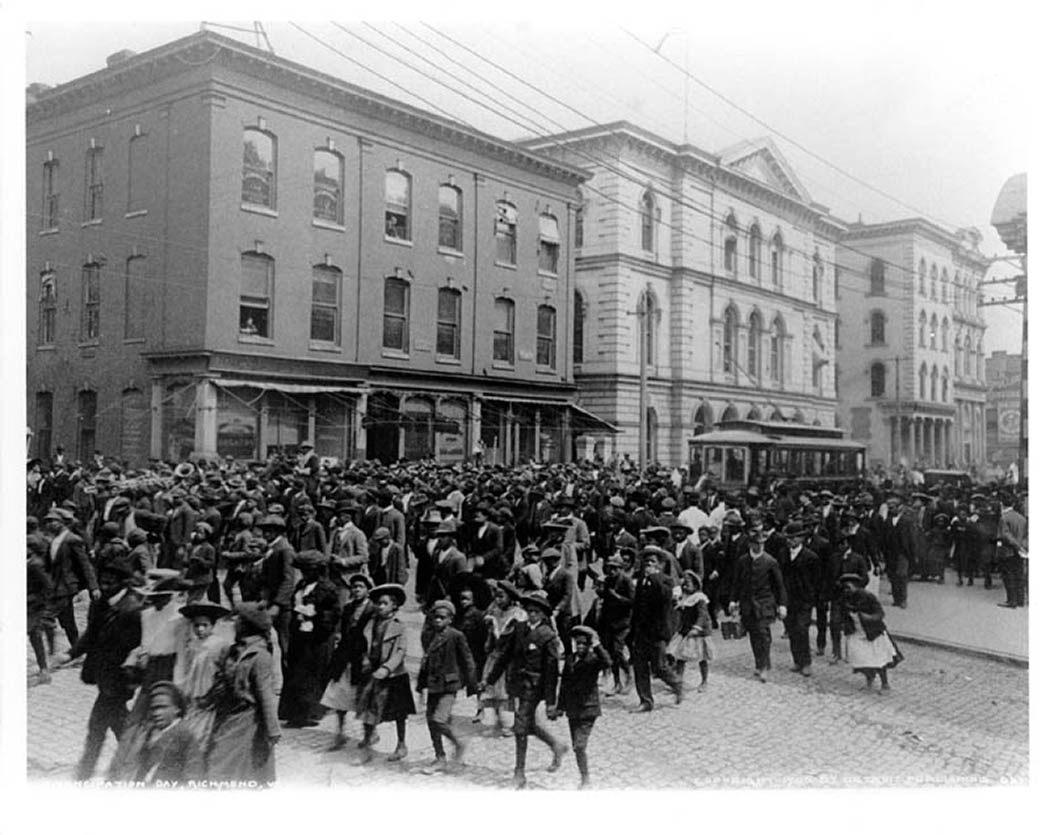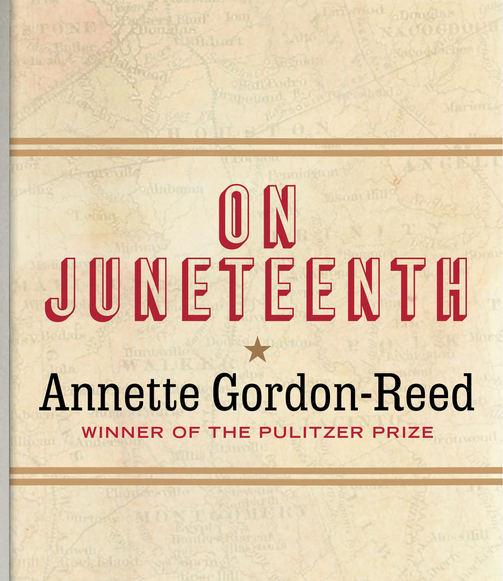“My fascination with the Underground Railroad began in elementary school,” says photographer Jeanine Michna-Bales in an email. “It was part of our school curriculum and I remember just being amazed that people had to go through this long journey in order to be free.” Michna-Bales, now based in Texas, grew up in the Midwest amid the unmarked paths of the Underground Railroad.
In March, her book, Through Darkness to Light, the culmination of 10 years’ worth of research and photographic documentation, was published. Twelve photographs from the collection, which imagines a possible route of nearly 1,400 miles from Louisiana to Canada, are now on display at the Jefferson School African American Heritage Center.
Celebrate Juneteenth!
June 16
- Talk by historian Anthony Cohen, founder of The Menare Foundation and the Button Farm Living History Center in Germantown, Maryland. Cohen traveled 1,200 miles from Maryland to Ontario in 1996, exploring the Underground Railroad.
- Libation Ceremony: A West African tradition that acknowledges the ancestors.
- Tribute to Local Elders: “It’s a good opportunity to really consider those people that worked to underpin the African-American community,” says African American Heritage Center Director Andrea Douglas.
June 17
- Jamal Millner Trio: Local musician plays various genres including jazz, funk and rock.
- Yolanda Coles-Jones: Area singer, photographer and blogger performs her music.
- Nikuyah Walker: Candidate for Charlottesville City Council performs her spoken word poetry.
- Other performances include Big Lean, Nay Michelle, Kese, Yolanda Muhammad, BCBA Dance Team
and DJ Flatline.
As the book and exhibition title suggest, these landscape photographs are dominated by darkness. This darkness invites closer examination of the scenes in what almost becomes an immersive experience, if such a thing is possible in two dimensions. The sensation is further enhanced by the descriptive narration of the tour guides in the JSAAHC’s Trailblazer program, a partnership with the City of Promise that trains local students to give exhibition tours.
One such guide is Bria Williams, a Washington, D.C. college student who is home for the summer. Conducting a recent tour, she draws attention to the light. While minimal until the journey’s end, it is visible in nearly every photograph. Standing in front of a photograph titled “The River Jordan,” Williams reminds visitors that if you’re a runaway slave you may not have access to a boat or know how to swim and says, “You’ve come so far already. Are you going to quit now?”
“We know nighttime was important to keep freedom-seekers unseen,” writes Michna-Bales. “I was aiming—as close as possible—for a first-person viewpoint. Light and dark draw you into a scene, and I tried to use that to highlight areas that I thought were important.”
It is almost as if history is wrapped around you like a blanket trying to make you understand all that has occurred on this given spot. Jeanine Michna-Bales
She sensed the force of history in these spaces as an almost physical weight as she tried to capture them. “I felt this most strongly in the South at the plantations,” says Michna-Bales. “It is almost as if history is wrapped around you like a blanket trying to make you understand all that has occurred on this given spot.”
Michna-Bales also became hyperaware “being out in rural locations in the middle of the night tapped into all of the senses. …The sounds were all-encompassing and mesmerizing, from the cicadas to coyotes baying in the distance, to thunderclaps from a storm and the sound of rain pelting the ground and the leaves. I came away from the project in awe of what these people went through for their freedom,” she says.
In the process, Michna-Bales also learned about white abolitionists who helped in the effort. “Out of this dark history, we see a diverse group of people working together to try to end the injustice of slavery,” says Michna-Bales, “thus creating America’s first civil rights movement. I hope that we can all use this part of our history and learn from it to help us navigate our way through the present into the future.”
On June 16 and 17, the JSAAHC will celebrate Juneteenth. The holiday, observed in 45 states, marks the day—June 19, 1865—on which the last enslaved people in the United States received word that slavery had been abolished. Andrea Douglas, director of the heritage center, says the “Through Darkness to Light” exhibition “really kind of dovetails with this notion of the implications of Juneteenth.”
Celebrants come from Charlottesville and the surrounding counties, too, Douglas says, “because this is one of the few sites, the few communities, that actually celebrates Juneteenth.”
While Juneteenth has been celebrated in Charlottesville for 17 years, this is only its second year at the Jefferson School. “We’ve kind of joined a network of communities,” Douglas says. “Many of them are sort of like family reunions, a calling of people back to the community, back to the place of their origin. And what’s most important about having it here at the Jefferson School is that, while we’re not the beginning, we’re certainly part of the origin story.”
Jeanine Michna-Bales’ exhibition “Through Darkness to Light” is on view at the Jefferson School African American Heritage Center through June 30.




